QuestionOur 11 month-old Corgi, Max, is a real sweetheart at the very core of his being. We know he loves everyone in the family, and we likewise love him. He is crate trained and has completed basic obedience. He has no issues with other animals or people. But it's like he's ADD. His crate is in our bedroom and he likes nothing better in the morning than to leave it and come to our bed for some serious cuddle time. He's good with it. But then when we all get up to get on with the morning rituals, it's his trigger. Suddenly he's barking incessantly and jumping on us and nipping. Nothing stops him. Then there's the chewing. We learned early when we got him (at 3 months) that soft toys would never do. He can take down a nylabone in mere hours. He is an obsessive chewer. And we can't let him out of our sight. We have lost shoes, sox, and a full square foot of carpet pile (down to the very carpet pad!)in our bedroom. He chews anything and everything he can get his mouth around--and he's long past teething. I would say he's psychotic, but he has no reason to be. The kennel owner raises her pups in the house and we know the bloodline. Max is first cousin to a wonderful 9-year old that we lost to cancer last December. He has received nothing but love and positive support since he came to live with us. We keep thinking that his personality will settle as he gets past the puppy stage, but so far there are no signs that this is happening. One minute he's calmly lying with his head on our feet; the next, he is balistic and off the wall! Thank you for any advice you can give
Answercorgis are renowned control freaks; some of this chewing MAY have originated as attention getting behavior and now become habitual. The barking and nipping are all part of a hyper excited juvenile mindset and definitely a Corgi attribute. You've entered the doggie "terrible two's" with a vengeance with this dog. Additionally, he may very well have some real needs that aren't being met. EXERCISE, and plenty of it; this means not only walking every day on leash, but also plenty of intellectual exercise. Most herding breeds do very well with a gaggle of hard, large, round balls (available as children's beach toys) in the backyard, which they use for herding purposes. You can go out with him and introduce him to his new "flock", reward and praise his natural herding instincts. Use positive reinforcement training to teach this dog many behaviors, ONE at a time (go to karen Pryor's web site and learn about clicker training.) Examine his diet: is there too much protein in his food? At 11 months, he is HARDLY past the puppy stage; in fact, he has at least another six months to go. Chewing can be a function of boredom, hunger, attention getting, lack of exercise (both mental and physical), a reaction to pain or anxiety, a response to something in the environment (sight, sound, scent), a learned behavior in response to stress (obsessive compulsive behavior), etc. Have this dog examined by the veterinarian for possible physical problems; reevaluate his diet; introduce positive reinforcement and engage his problem solving capacities; give him more exercise and something to control other than yourselves; and put a lightweight nylon leash on him indoors so you can control his nipping/hysteria by picking up the leash (without putting your hands on him) and diverting him to a learned behavior for which you can reward him. If you observe any really odd behavior (such as staring into space, snapping at air, running in circles, teeth chattering), have him tested neurologically. And have patience.

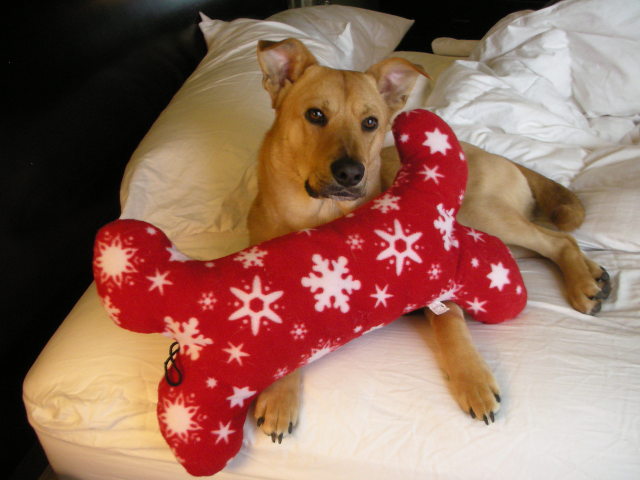 Very Scared Dog
Question
Happy
My dog is 17 months old and is a mixed b
Very Scared Dog
Question
Happy
My dog is 17 months old and is a mixed b
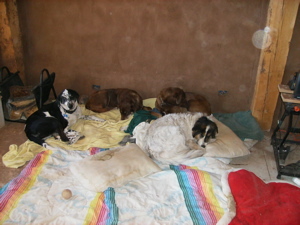 Sudden aggression within pack after a death
Question
Sudden aggression in o
We have an approximatel
Sudden aggression within pack after a death
Question
Sudden aggression in o
We have an approximatel
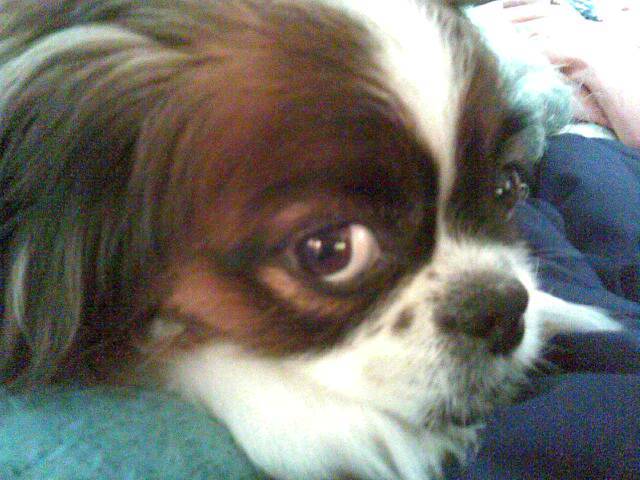 Post bladder surgery potty training for INDOORS!
QuestionTiki
QUESTION: Dear Dr. Connor,
My 10 ye
Post bladder surgery potty training for INDOORS!
QuestionTiki
QUESTION: Dear Dr. Connor,
My 10 ye
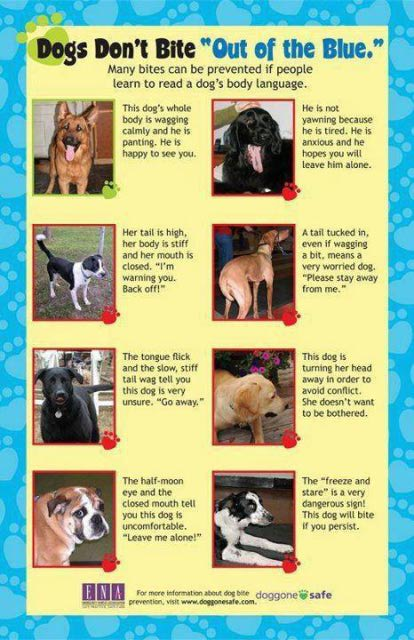 Is this aggression, dominance, or play?
QuestionQUESTION: I have a question regarding doggy beh
Is this aggression, dominance, or play?
QuestionQUESTION: I have a question regarding doggy beh
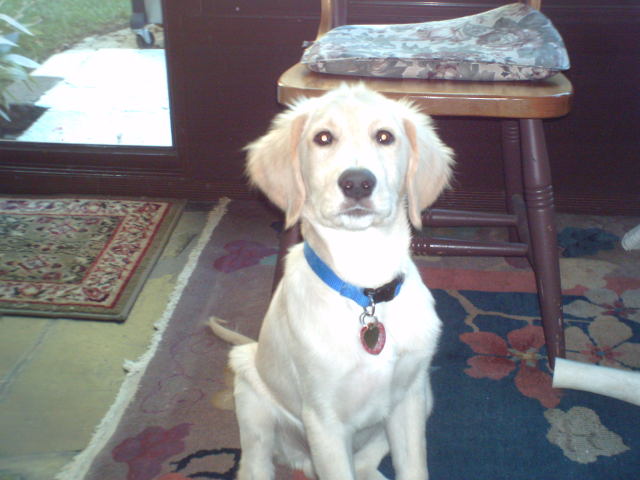 my 7 month old golden changed for the worse
QuestionRiley at 6 months
QUESTION: I got a gold
my 7 month old golden changed for the worse
QuestionRiley at 6 months
QUESTION: I got a gold